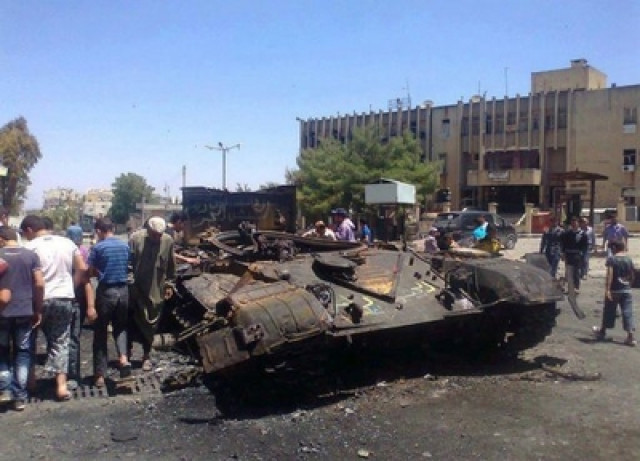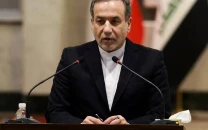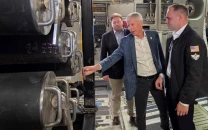Syria activists run deadly risks as medical needs rise
UN Office for the Coordination of Humanitarian Affairs says that up to 1.5 million Syrians now need aid.

Smugglers carrying aid walk on foot for over an hour along the rugged routes between Turkey and Syria before reaching the border where the shipment is handed to other members of the ring who take it by vehicle to areas in need.
The journey is fraught with danger as smugglers can be detained or shot by Syrian troops, but it remains less risky than taking activists wounded in the violence to government hospitals where their arrest is inevitable.
“For Syrian authorities, being caught carrying medicine equals smuggling weapons,” says Khaled Mustafa, an activist who heads a committee assisting Syrian refugees in Lebanon and helps gather and deliver aid to victims of the conflict in his home country.
While Turkish authorities facilitate the flow of aid, activists say the process is more difficult from Lebanon, where the government has taken a more reserved stance towards the Syrian revolt.
But donations are collected from sympathisers and medical supplies are bought from pharmacies across Lebanon, says Mustafa.
They are then smuggled in a journey that may take from one day to a week, depending on the alertness of Syrian authorities along the border.
The supplies are then handed to activists inside the country who carry them -- protected by the rebel Free Syrian Army -- to hotspots.
“Many medical shipments have been confiscated and many teams trying to smuggle aid or wounded people have been arrested or killed” by Syrian authorities, Mustafa said.
More than 16,500 people have been killed since the 15-month-old conflict began, rights groups say, and Syrians abroad have increased efforts to provide aid to their compatriots, some sending a portion of their salaries to fund medics treating victims of the conflict.
However there remains a “very big” shortage of medical supplies, says Anas al-Nuaimi, a founder of Al-Khair Campaign that provides aid to Syrian refugees and less frequently smuggles aid into the country.
“You can barely smuggle four to five boxes of aid per day, which are nothing,” says Nuaimi.
Nearly six months after the revolt erupted, pro-opposition medics began establishing field clinics for treating victims of the crackdown to avoid their arrest at government hospitals.
A field doctor in the country, who goes by the pseudonym Rama al-Hallak, told AFP that authorities had “confiscated and burnt down a field hospital we set up.”
“Two of our clinics which were also robbed,” she said, adding that the makeshift medical stores face the same fate, if discovered, and their owners are arrested.
The UN Office for the Coordination of Humanitarian Affairs says that up to 1.5 million Syrians now need aid.
Medical supplies needed from abroad include anaesthetics, which only government hospitals are allowed to obtain, and blood substitutes, as normal blood transfusions are difficult to carry out safely in field hospitals, says Hallak.
“To date, no humanitarian medical assistance can be adequately delivered to those in need in Syria,” said Antoine Foucher, head of Doctors Without Borders (MSF) mission to Jordan.
“Those willing to help have been condemned to a precarious clandestinity.”
Amnesty said last week that Syrian forces tortured and killed three medics one week after their arrest, in an “appalling disregard” for the profession.
A medic who worked at a government hospital in Syria before fleeing the country told AFP that “security forces, fully armed, used to enter the operations room at the hospital.”
“They once snatched a wounded man right out of our hands” during a surgery. he said. “We could do nothing as we watched them take away victims.”
Medics at government hospitals wait until late in the evening to discreetly and quickly operate on wounded protesters to avoid being arrested along with activists, he said, adding that many doctors seized in recent months for helping activists remained in detention.
MSF’s Foucher said the ongoing fighting in Syria had created a “disaster” for those needing treatment.
“Wounded persons trying to cross the border are deliberately shot.”
“The high level of violence combined with a deliberate strategy of the security apparatus to prevent people from accessing adequate medical care have left thousands of wounded enduring grave trauma, infections, and for some of them ultimately death,” he said.


















COMMENTS
Comments are moderated and generally will be posted if they are on-topic and not abusive.
For more information, please see our Comments FAQ